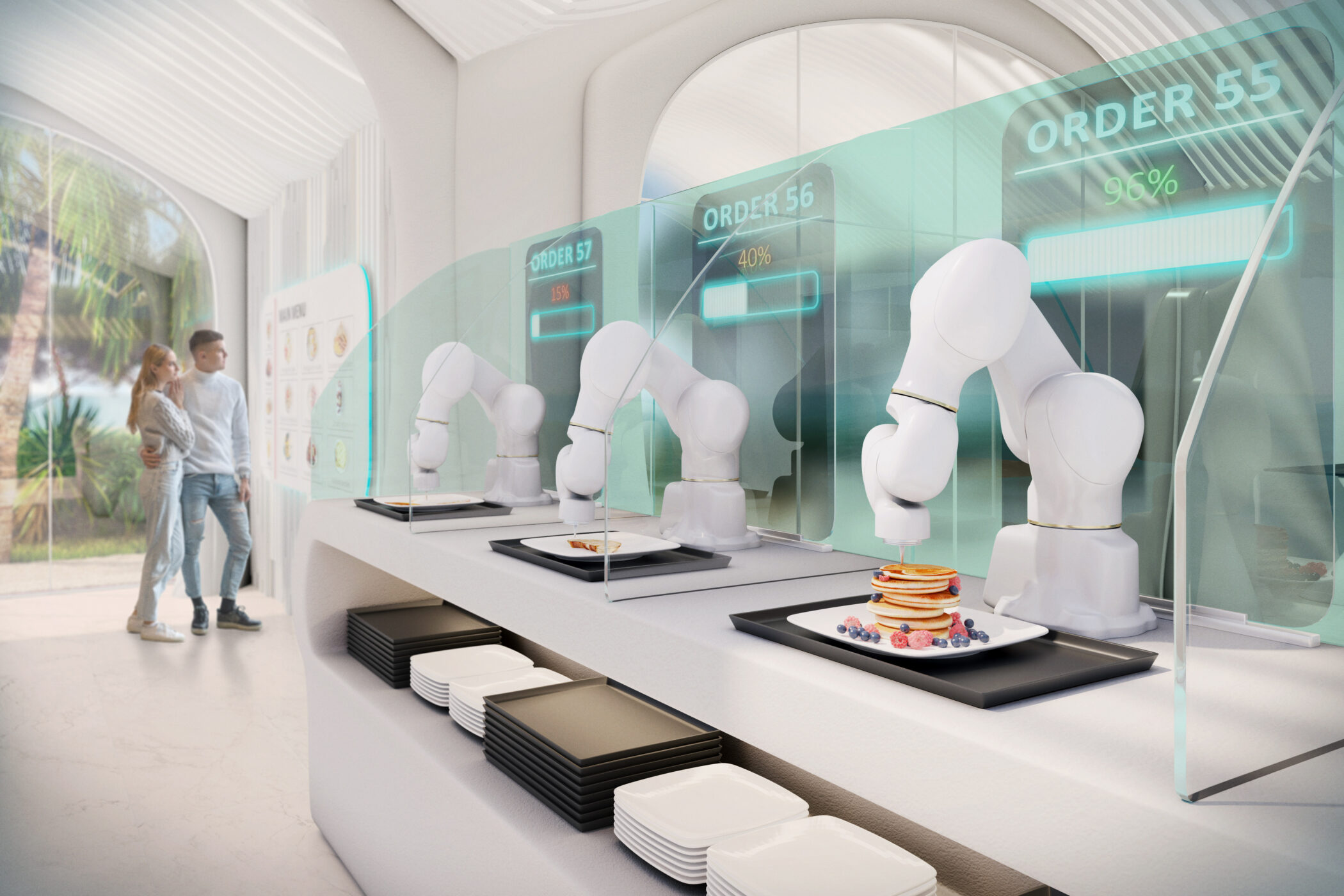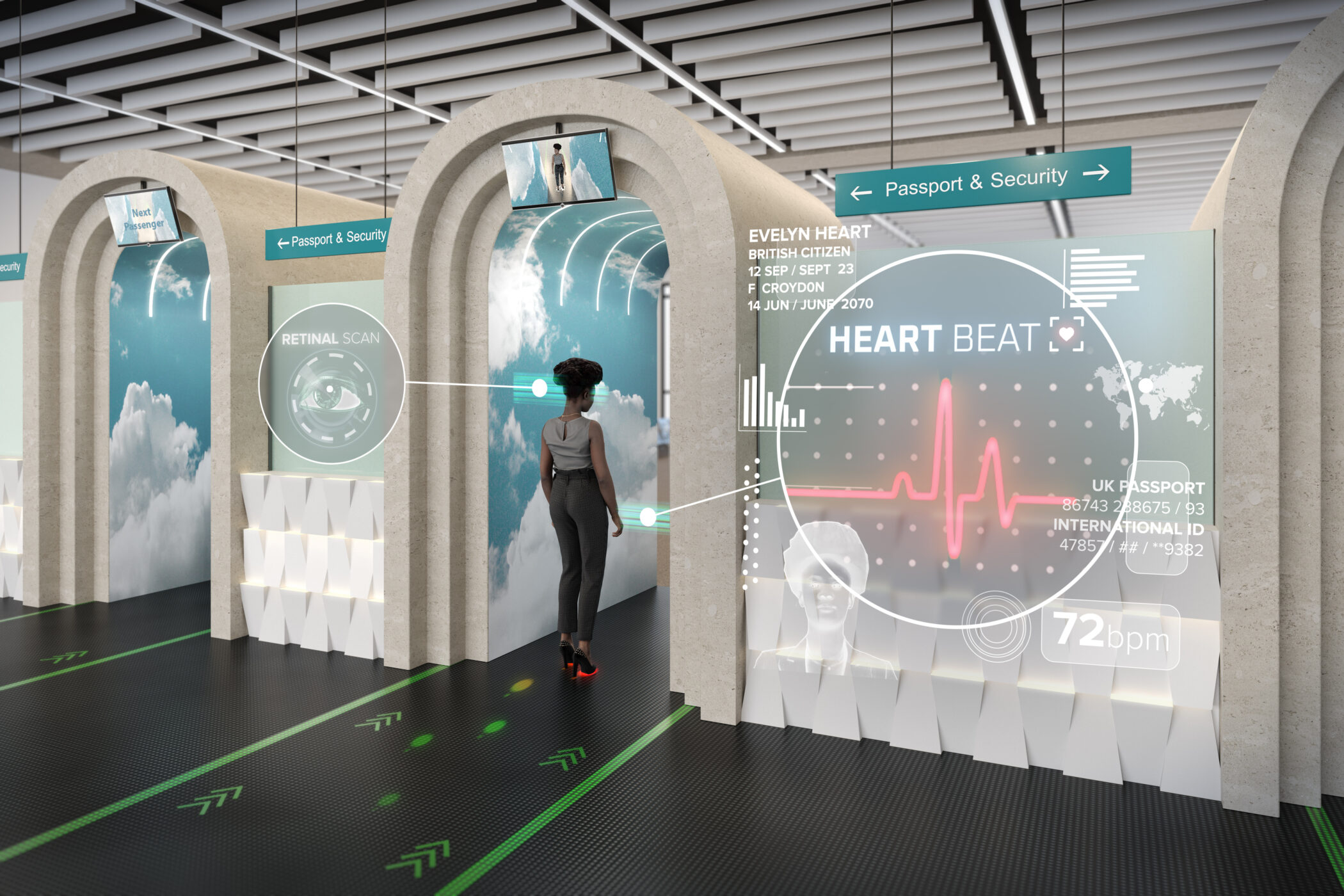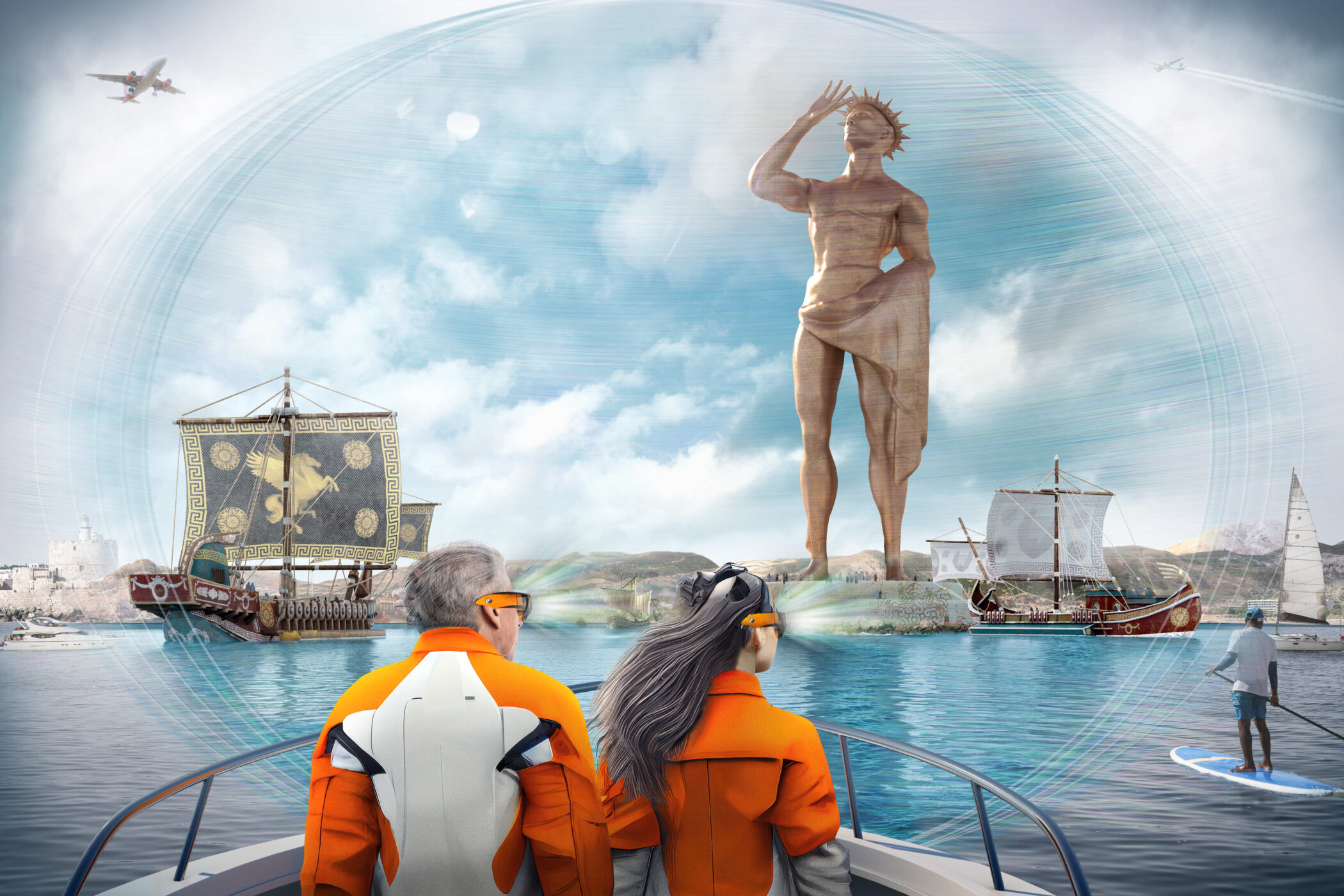From heartbeat passports to biometric sensory plane seats, a new forecast from Easyjet predicts what travel will be like in 50 years’ time. Rose Dykins reports
Easyjet has commissioned a future-facing report that predicts how we will travel in 50 years’ time.
Easyjet 2070: The Future of Travel Report was co-authored by some of Europe’s leading futurists (but not Globetrender on this occasion), as well as experts in aerospace, innovation and engineering. The report forecasts innovations in airport journeys, air travel, accommodation and holiday experiences.
Among the travel trends predicted to be the norm for 2070 are biometric sensory plane seats, optoelectronic inflight entertainment beamed directly to passenger’s eyes and digital personal holiday concierges.
Three quarters of Brits said the technological advances outlined in Easyjet’s report would make them more likely to go on holiday in the future. Of the 2,000 people surveyed, 90 per cent also said they were excited or intrigued by what technological advances would make travelling look like in 50 years’ time – with time travelling holiday experiences (42 per cent), heartbeat passports (38 per cent) and 3D-printed hotel buffet food (19 per cent) among the expert predictions they would most like to see become reality. The report’s co-authors were Professor Birgitte Andersen of Birkbeck, University of London and CEO of Big Innovation Centre; Dr Melissa Sterry, design scientist and complex systems theorist; futurists Shivvy Jervis and Dr Patrick Dixon; director of transport systems at Cranfield University, Professor Graham Braithwaite; and Nikhil Sachdeva, principal for aerospace and defence and sustainable aviation at consultancy Roland Berger.
The report’s co-authors were Professor Birgitte Andersen of Birkbeck, University of London and CEO of Big Innovation Centre; Dr Melissa Sterry, design scientist and complex systems theorist; futurists Shivvy Jervis and Dr Patrick Dixon; director of transport systems at Cranfield University, Professor Graham Braithwaite; and Nikhil Sachdeva, principal for aerospace and defence and sustainable aviation at consultancy Roland Berger.
Easyjet also launched a video where science TV presenter Dallas Campbell discusses what these predictions could mean for what air travel could look like for travellers of our future.
When considering how the airport journey and air travel experience will be revolutionised by technological advances by 2070, the report explores the notion of heartbeat and biometric passports replacing the traditional passport.

Each person has an unique cardiac signature – in the same way they have their own fingerprints and retina. Therefore, the Easyjet report predicts passengers’ heartbeat signatures and biometric details will be logged on a global system, just like fingerpints scanning technology works today. Once passengers board the plane, they will settle into ergonomic and biomimetic sensory plane seats. These will be made from smart materials that adapt to each passenger’s body shape, height, weight and temperature, providing the ultimate tailored comfort flying experience
Once passengers board the plane, they will settle into ergonomic and biomimetic sensory plane seats. These will be made from smart materials that adapt to each passenger’s body shape, height, weight and temperature, providing the ultimate tailored comfort flying experience
In-flight entertainment will be beamed directly in front of passenger’s eyes, via optoelectronic devices, replacing the need for onboard screens or downloading movies before you fly.
Instead of airport car park shuttles, passengers will hop onto e-VTOL air taxis. The journey to the airport will be quicker and more convenient than ever before, with 85 per cent of passengers arriving by e-VTOLs from their homes to the terminal by 2070.
The Easyjet report predicts how holiday accommodation will evolve in line with technological advances. For example. it forecasts that in 2070, rather than choosing from a hotel buffet, holidaymakers will be able to 3D print whatever they want to eat for breakfast, lunch and dinner, while reducing food waste.
3D-printed, recyclable holiday clothes will also be available on arrival at a hotel, removing the need for suitcases and fast holiday fashion. Travellers will print clothes they require in their hotel rooms that are tailored to their perfect fit and style, and then recycle the materials for the next guest to use.
The Easyjet report also forecasts that by 2070, subterranean hotels will be built into the fabric of the earth, creating super energy efficient accommodation that is at one with the environment. Hotels will also harvest energy from guests footsteps in order to generate power.
All hotel rooms will be smart rooms, with beds already pre-made to exactly desired firmness, ambient temperatures and favourite music playing based upon preferences guests select in advance of booking their holiday.
Meanwhile, a holographic personal holiday concierge will accompany holidaymakers to provide up-to-date destination information and assistance throughout their stay. As for experiences and activities travellers will enjoy while on holiday in 2070, the Easyjet report predicts “time travelling” will be made possible in 50 years’ time. Tomorrow’s travellers will be able to holiday in the past by wearing haptic suits that enable them to immerse themselves in live historical surroundings.
As for experiences and activities travellers will enjoy while on holiday in 2070, the Easyjet report predicts “time travelling” will be made possible in 50 years’ time. Tomorrow’s travellers will be able to holiday in the past by wearing haptic suits that enable them to immerse themselves in live historical surroundings.
This would make it possible to marvel at wonders of the ancient world like the Colossus of Rhodes during a stroll in Rhodes Town, or cheer among the crowds of the original Olympic Games in Ancient Greece.
The report also predicts the arrival of “sea-faris” – adventures on board submarines for tourists to discover marine life in underwater marine parks, deep beneath the sea’s surface. At the beach, tech-driven watersports will become the norm – such as E-foiling, cable skiing and flyboarding – with rentals becoming much more widely available in the next 50 years.
Travellers will also be able to test-drive their holidays through bionic and metaverse holiday previews, that allow them to experience locations before booking their trip. Meanwhile, local language in-ear devices will be available to take on holiday to translate the local language in real time and enable travellers to communicate.
Easyjet CEO Johan Lundgren says: “Innovation is in our DNA and we’re always challenging ourselves to think big and look at how we can make travel even easier for people all across Europe, both today and for generations to come. From biometric heartbeat passports to time-travelling holiday experiences, travel in 2070 is likely to be very different and exciting indeed.”
